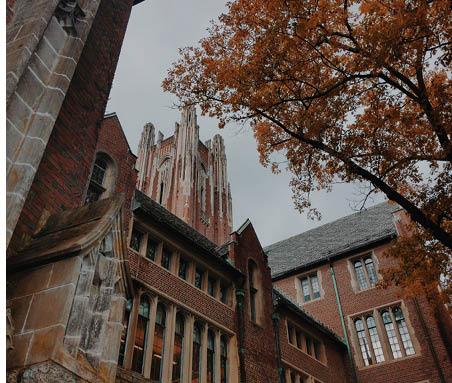Five years ago, during the second snowiest February in Boston history, there was an average of one new storm system every week — at one point, classes at the College were canceled three days in a row. Two years ago, a nor’easter brought over a foot of snow, causing power outages from downed electrical wire. Last year, the College declared a snow delay in late March after a winter storm left thousands without power and roads in poor condition for travel.
In contrast, this year’s winter months of Jan., Feb. and Mar. have comprised one of the warmest winters on record, with the least amount of snowfall recorded since 1937, according to WBZ-TV. On average, Boston sees eight inches of snow in February; this year, the city got less than half an inch.
From Feb. 23 to Feb. 29, temperature highs averaged 53 degrees Fahrenheit in Wellesley. On Feb. 24, temperatures reached a high of 65 degrees, more than 20 degrees higher than the date’s historic average of 42 degrees.
“My honest reaction was, ‘What the hell is going on? Is it spring? Is this the sun?’” said Christie Chong ’23. “I had no idea what I was expecting but certainly not this warm.”
To some, this has been a welcome surprise. Students from warmer climates felt right at home in the new weather.
“I felt like I was in California,” said Jessica Wong ’23, a student from Sacramento, California. “I wasn’t expecting California weather in Boston, especially in the winter.”
According to Wong, she had bought winter jackets, snow boots and layered clothing in anticipation of a snowy February. They remain in her closet, swapped for short sleeves and sneakers.
WBUR reported that a cause of the abnormally warm winter may be the continental arctic polar vortex, a jet stream of cold air circling the top of the planet. In years with oscillating polar vortexes, such as last year, the jet stream weakens and cold air moves south. This year, the polar vortex was relatively stable, locking the cold air within.
“It’s definitely consistent with the predictions,” said Yuxi Xia ’20, an environmental science major. “Many plants are already budding … earlier than they normally do.”
However, the polar vortex does not account for changes in weather in other regions of the world.
“Back in Hong Kong, it basically feels like summer,” said Chong.
Global warming is now an unavoidable issue for presidential candidates. According to a poll from CBS News, climate change was ranked as the second most pressing issue for registered Democratic voters following health care, and candidates for the Democratic Primary have capitalized on it as a rallying point for their campaigns.
At Wellesley, students have regularly held strikes and town halls to raise awareness of climate change. On Dec. 6, over 50 students, faculty and staff gathered outside Jewett to protest the College’s investments in the fossil fuel industry. A climate crisis town hall on Sep. 4 lasted over seven hours.
“Something needs to be done about climate change. This abnormal weather shouldn’t be the new ‘normal’,” said Chong.






